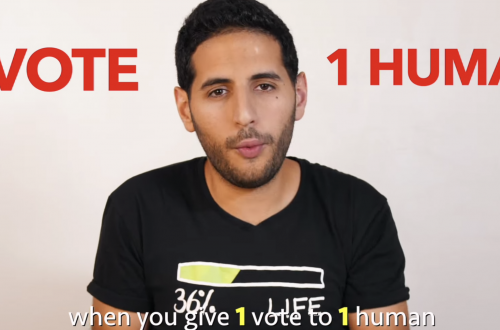By Jurek Molnar
1
In his political theory Aristotle identified three forms of government: monarchy, oligarchy and democracy. Monarchy is the rule of one, oligarchy the rule of the few and democracy the rule of the many. This definition is of course only descriptive, and so the specific qualities of each type of government is mostly the task of the observer, but these simple concepts are still the basic foundations of all Western political theory.
In the context of ancient Greece and Rome, nevertheless, Plato and Aristotle and also later observers considered politics a practical problem, to which solutions only partially existed. The three forms of government are not definitive answers to the problem of politics, only tactical approaches to specific contradictions political struggle poses to those who govern. To this day the specific contradictions of politics and government are unsolved problems of political theory and practice. The problem of government in short is the simple question how to avoid civil war. Every form of rule and order creates necessarily resistance and rejection, which tends to get violent and keeps every society in a permanent struggle. Political thinkers like Machiavelli, Spinoza, Hobbes or Marx have thought in their own ways about this ongoing turmoil in human societies.
Plato, Aristotle and later observers were negative about all three of these forms of government and considered them only as useful under specific circumstances. They favoured monarchy and oligarchy given certain pretexts, but they were entirely negative about democracy and could hardly see any advantage in it. This fact is all the more ironic, since our own understanding of democracy relates it as a legitimate successor to the system of Greek city states. While these thinkers considered monarchy as a form of tyranny and oligarchy as a form of institutionalised corruption, democracy was the rule of chaos. In the most outspoken critique of democracy, Polybius identified democracy as something we would call “populism”, the rise of ambitious men to power who use the emotional instability of masses to establish their own tyranny. While oligarchy was the rule of nobles and elites, who owned most of the wealth and tended to get irredeemably corrupt, it was still preferable to the chaos of democratic conditions, which only brought sickness and disease from the sea, as Plato put it once. Democracy was by far the most unpopular form of government among those ancients who are considered today to be their most prominent advocates.
2
Our understanding of democracy has certainly evolved since ancient times, although the specific problems of government have not changed. Let’s focus on this definition: democracy, as we understand the term today, is an institutional framework, in which different political beliefs, doctrines and opinions compete with each other, regulated by laws and motivated by individual ambitions.
The single advantage of democracy to all other forms of government is the idea that opposite political beliefs and doctrines do not have to go into civil war, but can handle their disputes by changes in the representation, which is mostly done by elections of specific government officials. The requirement for such a process is recognition. The opposite political factions recognize each other as legitimate and accept changes as necessary parts of the process. If the recognition process doesn’t work anymore, the hostile parties will go inevitably into civil war.
To “believe in democracy” means that my opponent in the political arena has legitimate concerns, that should be decided in an electoral process. This understanding seems to crumble in most modern democracies. In Germany for instance the right-wing party AfD (Alternative for Germany) has become the most discussed political topic of recent years. The electoral success of the AfD has triggered responses by ruling parties in government to ban the AfD from the political process, because it is not “democratic”. The argument against the AfD is mostly the suspicion that the party harbours attitudes, which run contrary to the German constitution (the “Grundgesetz”), but are mostly insinuations based on political rivalry. The ironic nature of the allegation that the AfD is not democratic comes mostly from its success in polls and elections. The parties in government are actually in panic that voters will chose the alternative and try to denounce the party and its voters as “enemies of democracy”. It is superfluous to say that the irony is lost on these critics. The more established the AfD becomes in the system of democratic representations the more it is deemed to be “undemocratic” by those who are in power and are afraid of its rise. The case demonstrates the idea that democracy needs the recognition of diverse and opposite political beliefs as legitimate. If the legitimacy is questioned, then the factions will go into civil war and democracy as a system will vanish. If one comes to the conclusion that his or her opponents are not democratic, the process of democracy abandons itself.
3
The most outspoken fear of democracy in the accounts of ancient authors was the idea that the democratic process itself would throw government and society into chaos. When the political struggles between factions become irreconcilable, the established order falls apart and people will turn against each other. The roman author Plautus coined the phrase “homo homini lupus” (Man is the wolf of man), which was later adopted by Thomas Hobbes and describes philosophically the never ending state of civil war. The ancients thought that democracy inevitably decays into oligarchy, in which the rival factions cannot defeat each other decisively, but create a state of permanent conflict. At some point civil war is inevitable. The Roman Republic ran in the first century BC into such a permanent civil war between populares and optimates, which represented different factions inside the elites who served different clients among the Roman citizens. Julius Caesar, a man of the populares, won the civil war against his rivals Marius and Sulla and made himself the leader of the Roman Republic. Caesar’s aim was to end the civil war and unite the Romans under his leadership. Despite his murder in the Senat, his successor Augustus became the next leader, who ended the Roman Republic and transformed it into the Roman Empire. Centuries of turmoil and civil war came to an end. The Roman Republic had been successfully shifted between democracy and oligarchy for centuries, but had created an unsolvable divide between different political agents who denied each other any legitimacy, which consequently led to permanent civil war. Augustus led Rome to centuries of prosperity and growth, but Rome necessarily drifted into decadence and corruption, in which the struggle for successors on the throne kept the political struggle deadly and the regimes unstable. The basic conflict of political struggle is unsolvable and things are drifting into chaos, when stable circumstances become unstable, because they cannot be sustained anymore.
Augustus was a political genius and a very competent leader, but his later successors were psychopathic thugs like Nero and Caligula and only rarely like Claudius or Marcus Aurelius, reasonable characters. The political struggle is a problem of enduring relevance. Marx’s concept of the class struggle was correct about its permanent nature, his idea was wrong that socialism could resolve the class struggle. The ancients were right that political conflict is unsolvable by default.
4
Democracy will necessarily abandon itself. The illusion we sometimes foster is the idea that democracy as we know it is the definitive answer to the problem of political struggle. It is not. Political conflict is inevitably self-destructive. No single society and form of government is immune to this. When the opposite factions stop to regard each other as legitimate, then the system drifts into chaos and civil war. “To believe in democracy” is to believe that my opponents not only have a right to express their opinions, but also that they are legitimate rulers, if their rule is supported by electoral majorities. If mutual trust in the legitimacy of opposing political beliefs has vanished, one can expect the outbreak of civil war. The fate of the Weimar Republic in Germany between 1921 and 1933 is a classic historical example. The moment this consensus falls apart, democracy is gone. The destruction of democracy is never the result of one side being democratic and the other not. That’s just the propaganda which starts it. The crumbling of the democratic process begins, when both sides deny the legitimacy of their opponents at the same time. It is the inevitable outcome of underlying conflicts, in which the former consensus that held the different parts together rots away.
When we focus on ancient authors we can learn that the three forms of governments are successive political systems, which follow each other in constant cycles. Democracy according to Polybius is always close to oligarchy (or the other way around), which then makes things so unbearable that tyrants create monarchies to establish order again, until this order decays and creates new social unrest, which sets the struggle into motion again. The political process of democracy is not as stable as we tend to think it is and will necessarily take a leap into chaos, when the consensus of mutual recognition breaks down. The sacred nature of democratic institutions will crumble, when opponents can’t recognize each other as legitimate and usually they start to do this all at the same time. History is cyclical.





